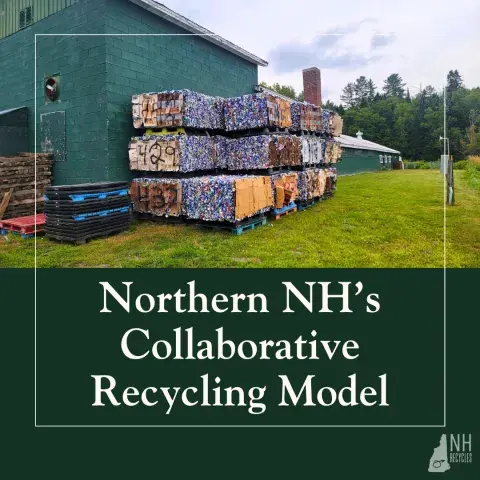
On a recent visit to Coös County, Steve Bean, NH Recycles' Municipal Recycling Advisor, witnessed firsthand how small, rural communities are making a big difference in recycling by working together. His site visit tour highlighted a strong network of transfer stations and a central recycling hub that helps to streamline the recycling process for several towns.
Steve's first stop was the Colebrook Transfer Station, managed by Dave Bunnel. The facility collects a wide range of recyclables, including cardboard, mixed paper, plastics (#1 PETE, #2 natural, #2 mixed color), and steel and aluminum cans. Instead of processing these materials themselves, Colebrook uses special three-section containers to transport them to the Coös County Recycling Center. This partnership allows Colebrook to handle a variety of materials without needing its own baling equipment. The station also serves as a drop-off for tires, scrap iron, asphalt shingles, e-waste, and batteries, in addition to collecting municipal solid waste (MSW) and construction and demolition debris (C&D).
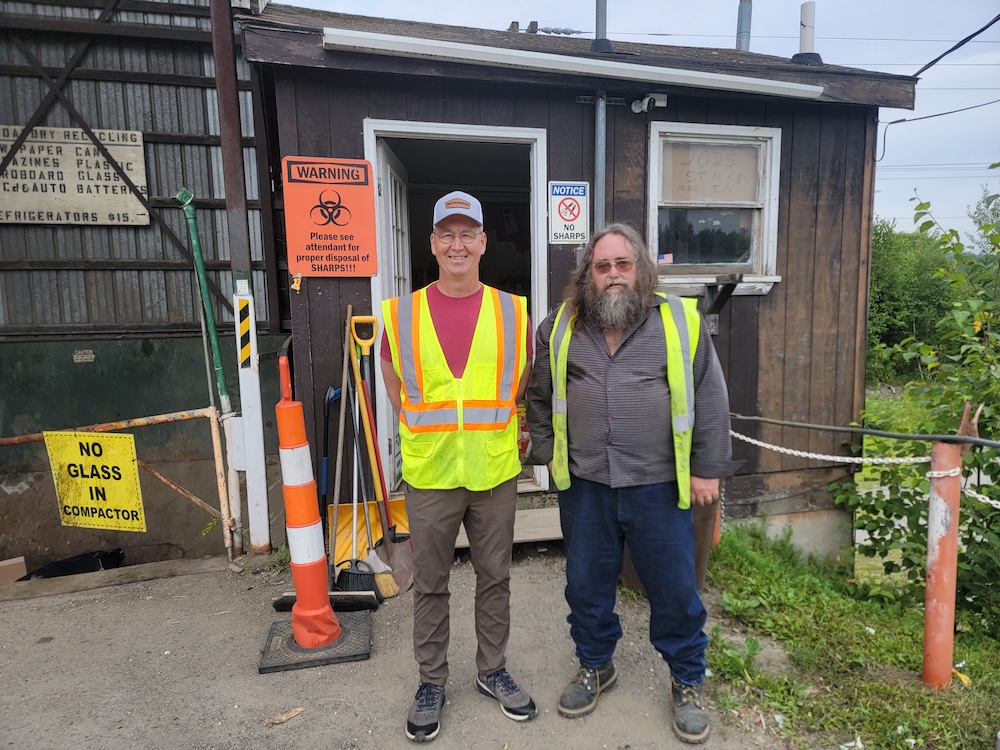
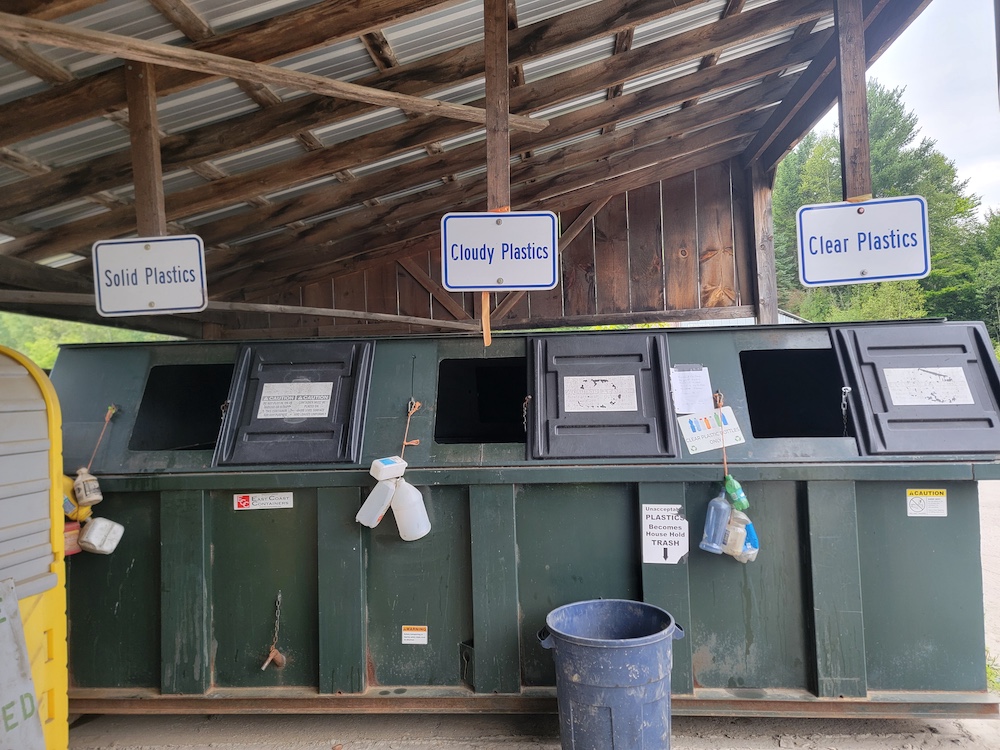
Left: Steve and Dave, Right: Plastics recycling collection containers
Next, Steve visited the Coös County Transfer Station, which serves the towns of Columbia and Stewartstown. He met with manager Roger Belanger at the small but well-organized facility. Much like Colebrook, this transfer station also utilizes the three-section containers to send its recyclables to the county's central hub for processing. The facility efficiently handles a similar array of materials, including scrap iron, e-waste, and batteries.
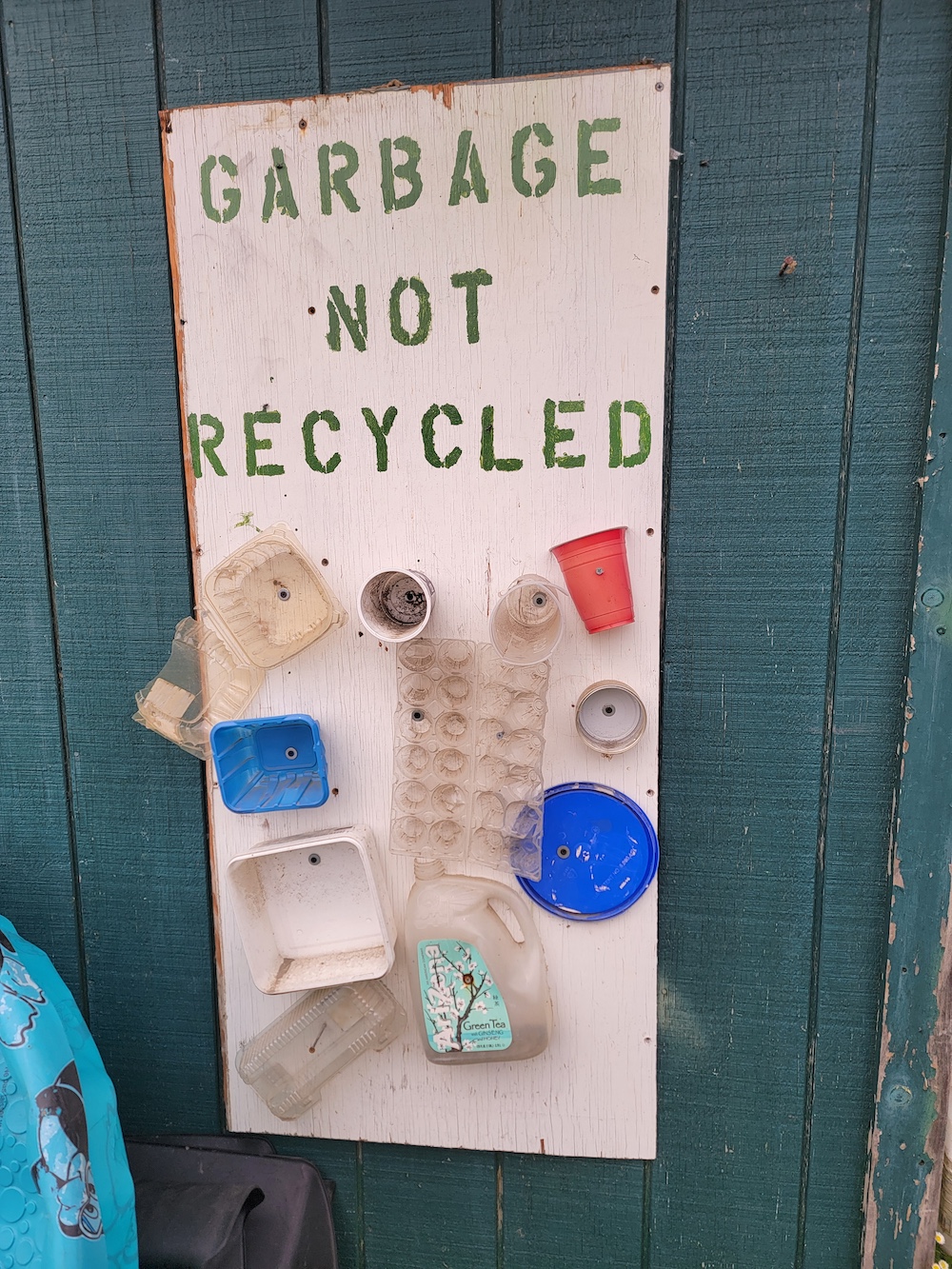
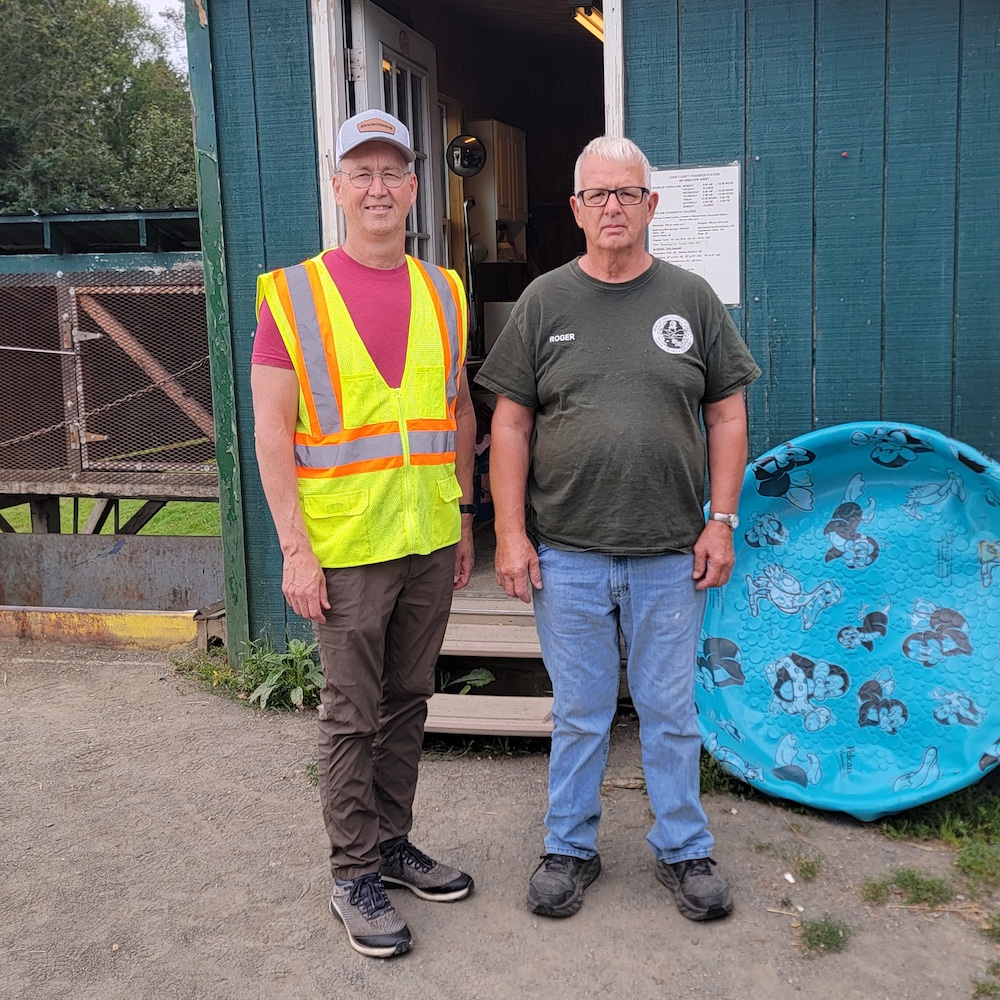
Left: Handmade sign helps residents see which types of plastic are NOT recyclable, Right: Steve and Roger
The heart of this collaborative effort is the Coös County Recycling Center, where Steve met with staff to discuss market trends and glass recycling options. This is where the recyclables from the surrounding towns are consolidated and processed. Using two vertical balers, the center efficiently bales plastics, paper, and metals for sale to recycling vendors. This centralized approach allows the smaller communities to benefit from a larger-scale operation, making their recycling efforts more efficient and economically viable.
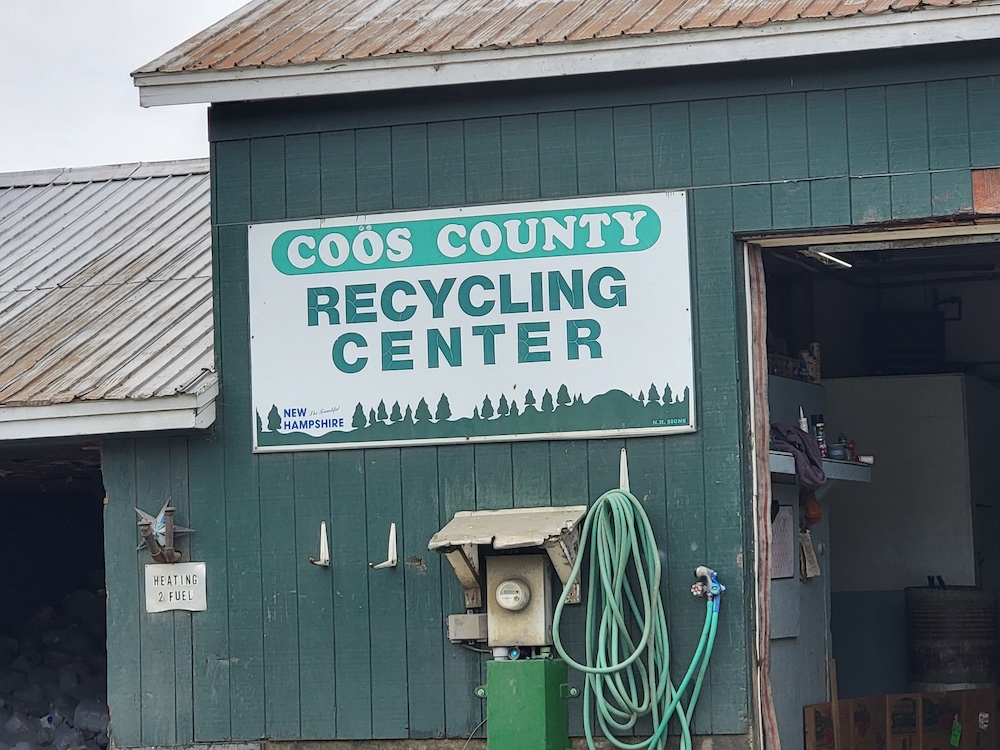
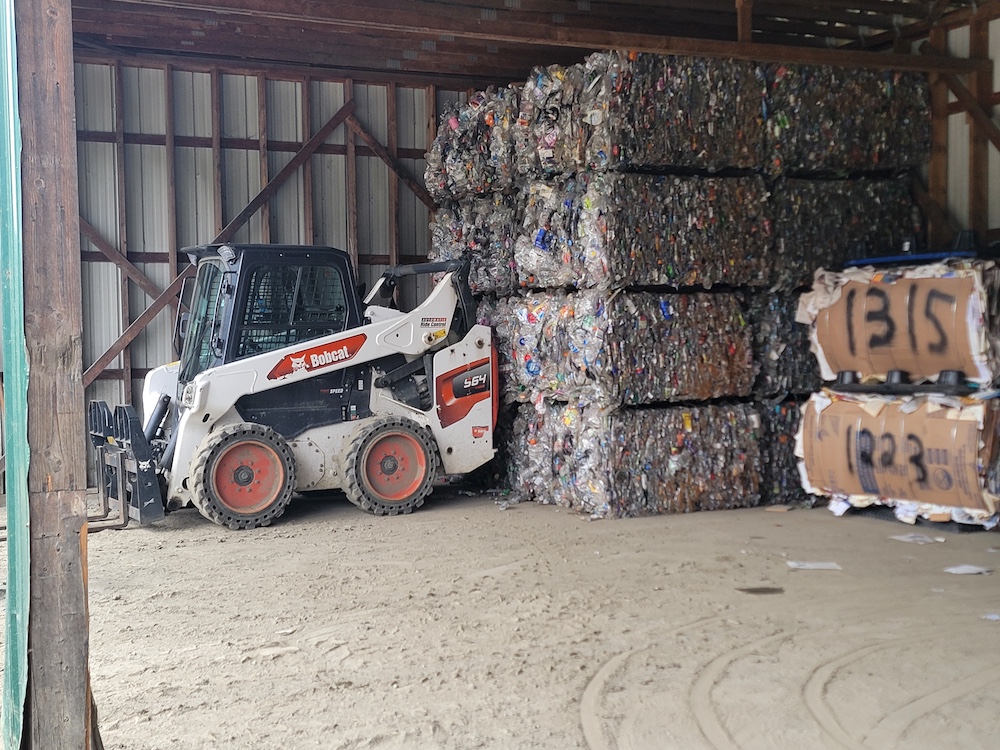
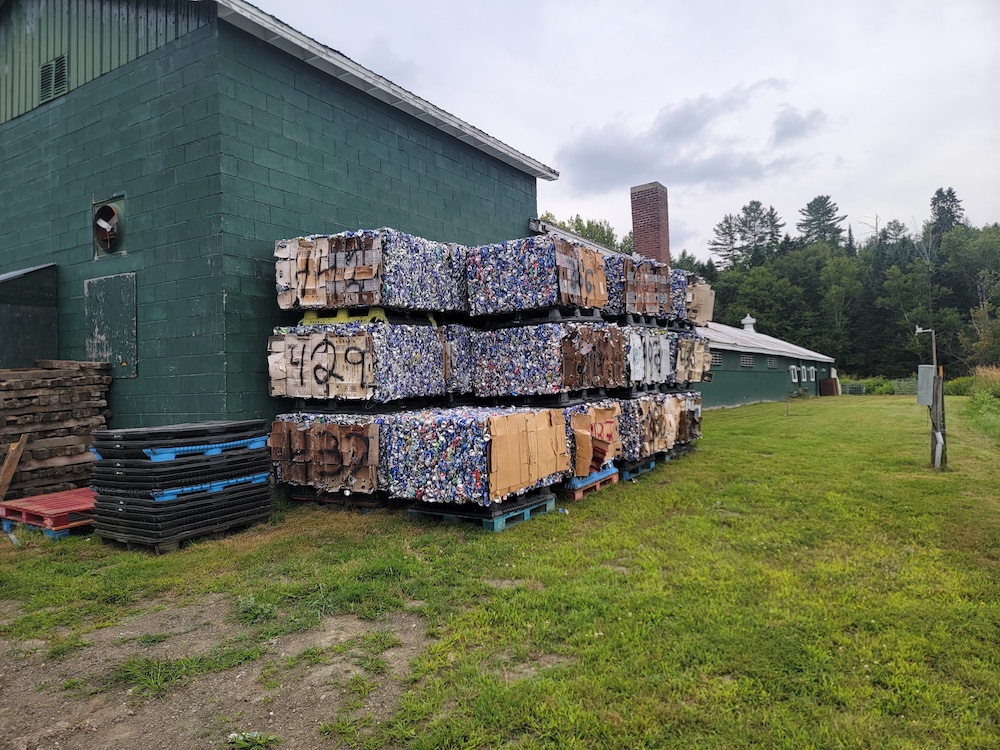
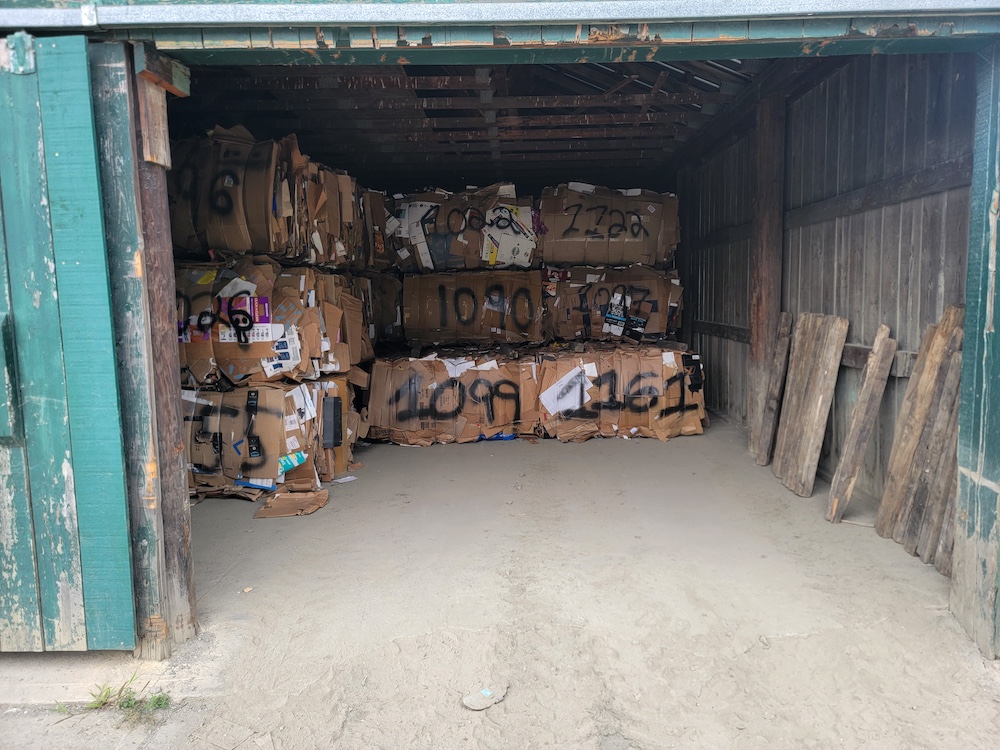
Clockwise from top left: Coös County Recycling Center sign, baled #1 plastic, baled cardboard, baled aluminum
The final stop was the Pittsburg Transfer Station, the northernmost town in New Hampshire. Staff members Eddie Avarts and Bob Blanchard proudly showed Steve around. This facility operates on the same cooperative principle, collecting recyclables like plastics, glass, and cans in containers to be sent to the county center. They also handle tires, brush, waste oil, and other items. Steve also met with Town Administrator Cheryl Sessa to discuss signage and communication, further highlighting the strong connections between NH Recycles and its member towns.
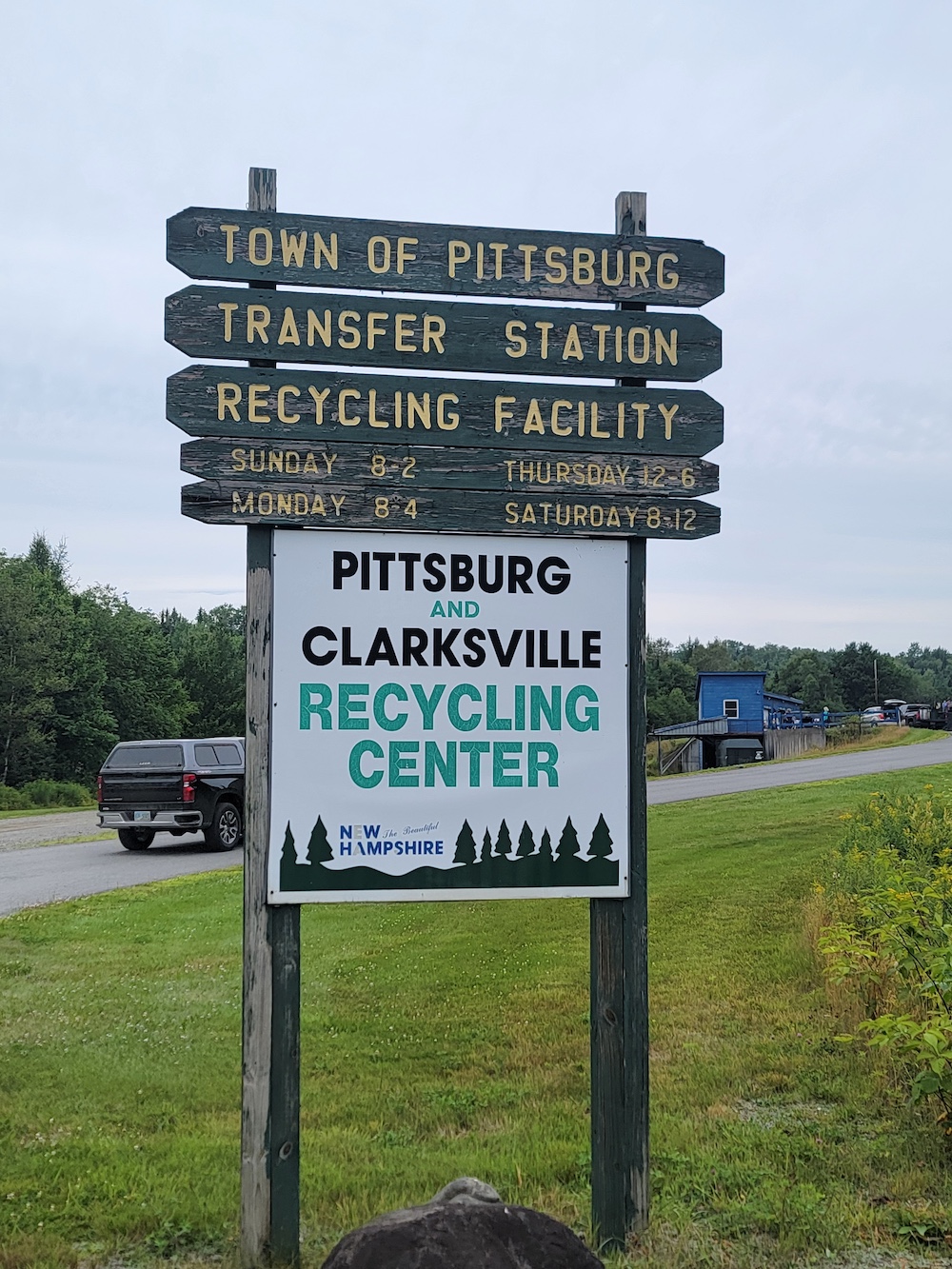
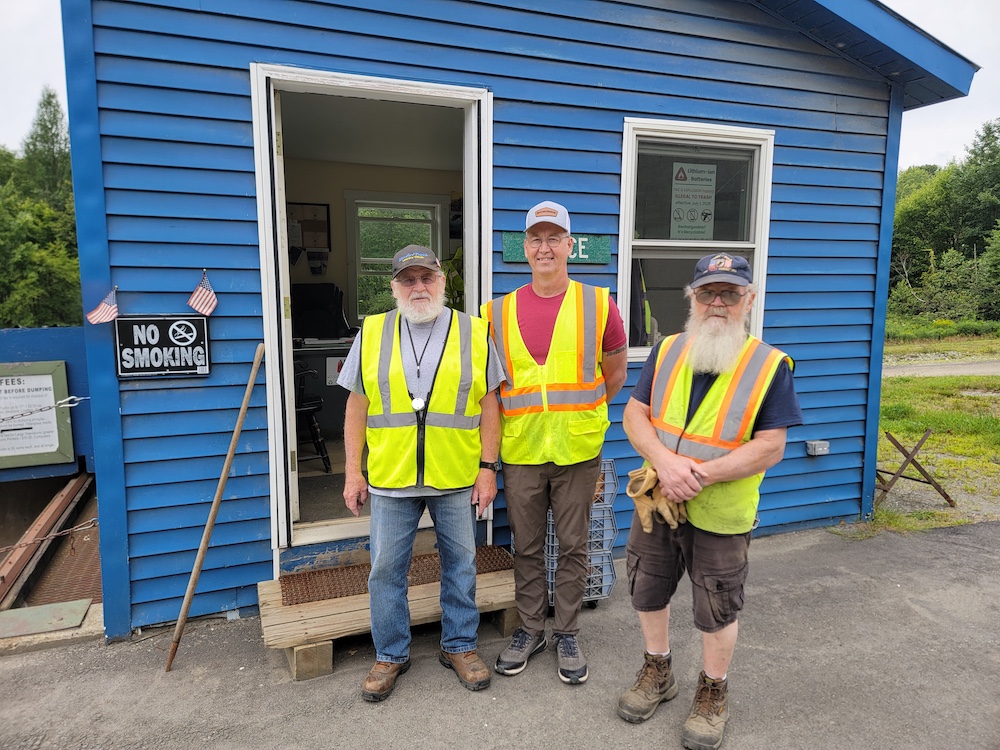
The day of site visits underscores a powerful model for rural recycling: several small, dedicated communities working together with a central county-level facility. This collaborative system, powered by hardworking people, proves that a united approach is key to effective and impactful recycling, even in remote areas.
- EPA disclaimer: This project has been funded wholly or in part by the United States Environmental Protection Agency under assistance agreement 4Y-84078701 to NH Recycles. The contents of this project do not necessarily reflect the views and policies of the EPA.